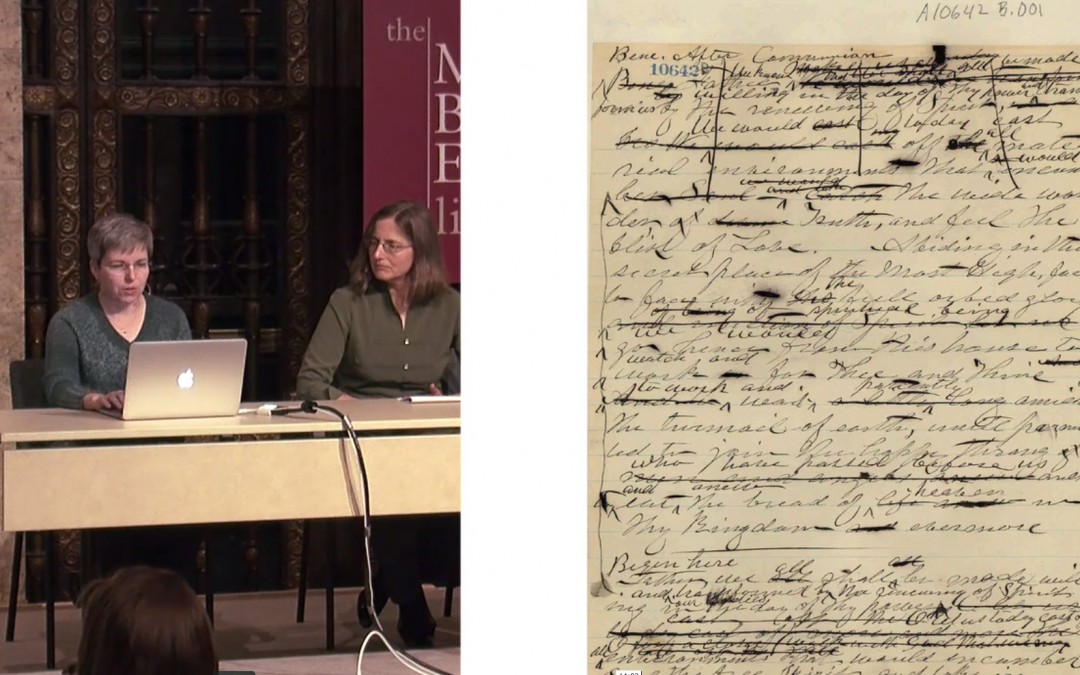Dr. Darling is Project Manager and Lead Researcher for The Mary Baker Eddy Library’s Pilot Papers Project. It’s starting out as a small pilot project; there are over 28,000 documents in the collection. My notes on her talk:
- working with researchers, the number one question they hear is “how can I access this from home?”
- they started with Eddy’s sermons, but difficult because the sermons are not all identified as such within the collection and they are heavily edited
- people need an access point. clicking on an accession # is not going work. so they gave the sermons “editorial titles”
- annotation: to give users a background, a context, a foothold
- letters, photos, sermons, maps are no longer siloed, but brought together on one page
- thinking of a global audience – even people who are brand-new to this can get information to help guide them, like biographical info even on “major players”
- helpful links to related documents and related topics
- clicking on related material will open in a new tab so you don’t lose your place
- glossary terms are defined in floating windows (again, don’t lose your place)
- understanding the difference between annotation and interpretation is important: there was some concern that Eddy would be interpreted. annotation is just like notes from an archivist or links to Bible verses or new/current spelling or expansions of abbreviated words (in pop-ups) or general footnotes.
- Transcriptions are complex – how do you honor this document? It’s very important to offer the image of the scan. This protects the original document (people are no longer handling it or exposing it to light), but also, almost more importantly, it’s often easier to work with digitized materials.
- “final edit” vs. original document: inspired by another digitizing project with “normalized view vs. diplomative view”. In the “final edit”, Eddy’s deletions are gone, but the original is available as well (this involves some xml transcription but just employing or supressing code)
- different user needs: church members might want “final edit” but a scholar might want the original with all of Eddy’s notes and crossouts.
